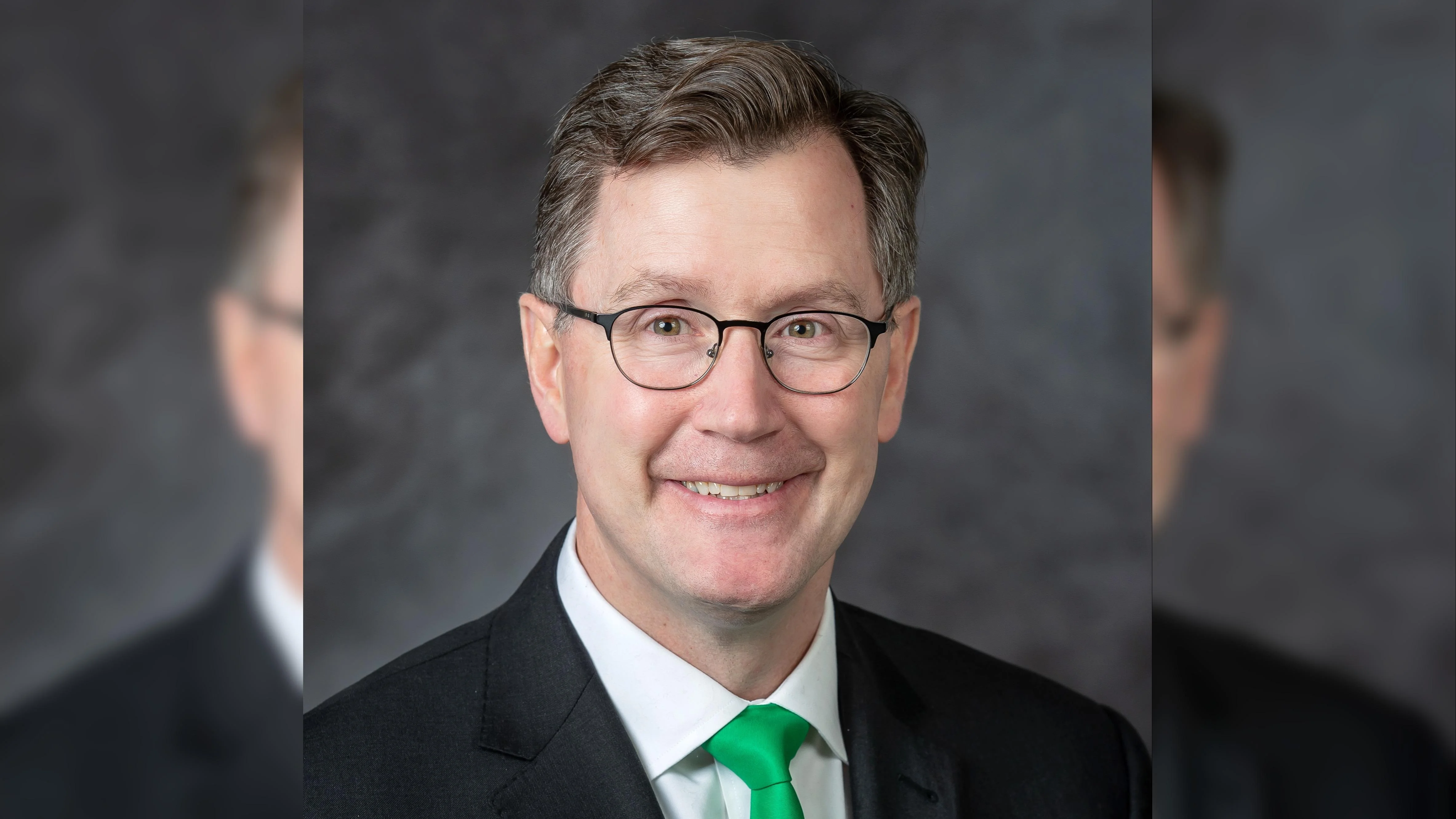Dr. Andrew Armacost, President | University of North Dakota
Dr. Andrew Armacost, President | University of North Dakota
The University of North Dakota celebrated the reopening of Merrifield Hall, a historic campus building, following extensive renovations. The event drew more than 100 guests, including students, faculty, alumni, and state representatives.
Brad Rundquist, dean of the College of Arts & Sciences, emphasized Merrifield Hall’s central role on campus. “Merrifield Hall — as home to the departments of English, Philosophy & Ethics, Languages & Global Studies and the Honors Program — touches almost every on-campus student here at UND,” Rundquist said. “And it also holds a very important place in the hearts of so many UND alumni. I heard from many who said, ‘I heard you’re going to renovate Merrifield Hall. Let’s be sure we keep this. Let’s be sure we protect that.’” He assured attendees that key features were preserved while modern updates were added: “We protected the important elements and, at the same time, we modernized — we needed to let in more light.”
UND President Andy Armacost highlighted Merrifield’s legacy and purpose: “It represents a place where our students and faculty gather to learn what it means to be human — to learn how to interact and to learn how to communicate. This is the essence of the building we wanted to retain.” He pointed out improvements such as ADA accessibility and commented on its appearance: “And dang, isn’t it beautiful?”
Rep. Mark Sanford discussed why investing public funds into facilities like Merrifield matters for education quality: “Students have expectations, and they aren’t exaggerated,” Sanford said. “They certainly should have good programs and good professors and leaders. But the important part in this is that those last two have a tougher time operating if they don’t have decent facilities. And that’s what you see today in the results.” Sanford praised UND's master planning for taking advantage of funding opportunities when available.
Frank White, former Professor of Sociology at UND for 34 years until his retirement in 2022, shared his reaction upon seeing colleagues and former students return for the occasion: “I’ve had a couple of students come up to me and go, ‘Frank, I remember you.’ And they’re students from 30, 20 and 10 years ago,” he said. White noted how different—and improved—the building now feels: "That was 'how modern, bright and polished it was.'"
Bob Boyd—a retired administrator who spent over three decades at UND—called Merrifield Hall central for liberal arts education: “This building is just absolutely beautiful...Merrifield is the heart of liberal arts…Those courses play such a critical role in the early years of our students because they give our students the background that’s necessary for them to succeed anywhere on campus.” He explained why renovation was essential: "It not only acknowledged that it was well-built in 1929 but that it also merited careful renovation."
Peter Johnson from Government Relations & Public Affairs with UND Alumni Association & Foundation described relief over preservation efforts during renovations: "I spent the majority of my academic career here as a student...there were parts...that I was a little concerned they wouldn’t keep...but I immediately was excited by what I saw." Johnson pointed out new spaces like The CALL (Cafe for Active Language Learning), designed for flexible teaching methods.
French Professor Sarah Mosher explained her vision behind The CALL: "This is a dream," she said about hosting classes daily along with frequent cultural events using adaptable furniture and technology.
Students echoed appreciation for both tradition and innovation within Merrifield Hall. Heather Schwartz remarked on rising interest due to interactive learning spaces while Isabel O’Neil described entering classrooms as experiencing something unique among colleges she visited.
Madilyn Lee reflected on her first impression as an undergraduate walking into Merrifield Hall: "Wow, that staircase...I just thought this is the most beautiful place on campus."
The renovation project included federal American Rescue Plan Act (ARPA) funding after delays caused by statewide assessments and pandemic disruptions.


 Alerts Sign-up
Alerts Sign-up